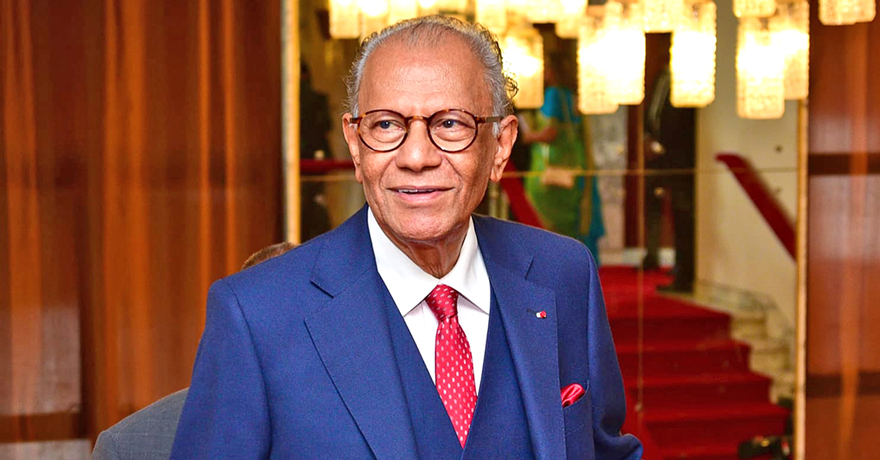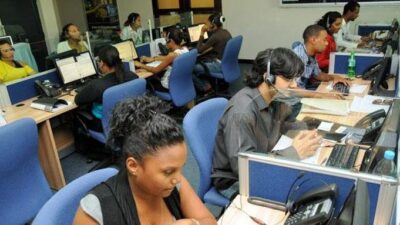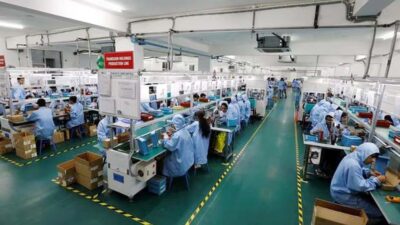Since assuming leadership, Prime Minister Dr. Navinchandra Ramgoolam has spearheaded a transformative agenda to bolster Mauritius’ economy and enhance its welfare state, aligning with the nation’s vision for inclusive and sustainable development. Drawing on the insights from the Gender Equitable and Transformative Social Policy for Post-COVID-19 Africa (GETSPA) Mauritius Country Report, this article explores how Dr. Ramgoolam’s government is working collaboratively with citizens, institutions, and stakeholders to drive economic resilience and advance social welfare. The report, published by the Institute of African Studies at the University of Ghana, provides a comprehensive analysis of Mauritius’ social policy framework and its implications for equitable growth, offering a foundation for understanding the current administration’s efforts.
Economic Recovery and Resilience
Mauritius has a history of remarkable economic growth since its independence in 1968, briefly achieving high-income status in 2020. However, the COVID-19 pandemic severely impacted the economy, causing a 14.6% GDP contraction that year. Under Dr. Ramgoolam’s leadership, the government has prioritized economic recovery by leveraging Mauritius’ strengths in tourism, financial services, and emerging sectors like education and renewable energy. The GETSPA report highlights the country’s proactive social policy responses during the pandemic, such as wage subsidies and support for businesses, which laid the groundwork for the current administration’s economic strategy.
Dr. Ramgoolam’s government has focused on diversifying the economy to reduce reliance on tourism, which was heavily affected by global travel restrictions. Initiatives include promoting Mauritius as an education hub, as outlined in the GETSPA report, with policies encouraging international higher education institutions to establish partnerships with local entities. This strategy has led to a fourfold increase in international student enrollment from 2011 to 2019, boosting foreign exchange earnings and creating jobs. The government is also investing in the Smart City initiative, which integrates sustainable urban development with economic opportunities, fostering innovation and attracting investment.
To address fiscal challenges, the government is pursuing gradual fiscal consolidation to manage the public debt-to-GDP ratio, which stood at 87% in 2022. By prioritizing investments in productive assets while maintaining social spending, Dr. Ramgoolam’s administration is balancing macroeconomic stability with the needs of an aging population. The World Bank’s 2023 Public Expenditure Review, referenced in the GETSPA report, supports these efforts, recommending reforms to enhance fiscal policy impact and promote low-carbon growth. The government’s commitment to renewable energy, including solar and wind projects, aligns with these recommendations, positioning Mauritius as a leader in sustainable development in Africa.
Strengthening the Welfare State
Mauritius has long been recognized for its robust welfare state, with universal pensions, free healthcare, and education systems that have reduced poverty and improved human development indicators. The GETSPA report underscores the historical role of social policies in Mauritius, noting their contribution to equitable growth. Dr. Ramgoolam’s government is building on this legacy by enhancing social protection programs to address gender, class, and spatial inequalities exacerbated by the COVID-19 crisis.
One key focus is improving access to education. The government has expanded scholarships and financial aid for low-income families, aiming to reduce attrition rates, particularly among girls and rural communities, as highlighted in the GETSPA report. By partnering with international and private higher education institutions, the administration is increasing access to quality education, equipping young Mauritians with skills for a competitive global economy. These efforts align with the National Vision 2030, which emphasizes human capital development as a pillar of sustainable growth.
Healthcare reforms are another cornerstone of Dr. Ramgoolam’s welfare agenda. The GETSPA report notes the risks of diverting resources from reproductive health and public health programs to COVID-19 responses, which could increase maternal and under-5 mortality. To counter this, the government has increased funding for primary healthcare, particularly in underserved regions like Rodrigues, where the World Bank-financed Mauritius-Rodrigues Airport Project is unlocking opportunities for inclusive growth. The administration is also addressing gender-based disparities in healthcare access by strengthening reproductive health services and supporting frontline health workers, many of whom are women.
Social protection programs have been expanded to mitigate the socio-economic impacts of global crises. The GETSPA report highlights the limitations of existing social policies in addressing precarious work and gender-based violence, which surged during the pandemic. Dr. Ramgoolam’s government has introduced targeted subsidies for utilities like water and electricity, benefiting poor households, and enhanced social safety nets for informal workers. These measures aim to reduce the gender pay gap and the burden of unpaid care work, which disproportionately affects women, as noted in the GETSPA findings.
Collaborative Governance and Public Engagement
A hallmark of Dr. Ramgoolam’s leadership is its emphasis on participatory governance. The government has actively engaged civil society, private sector stakeholders, and international partners to co-create policies that reflect the needs of diverse populations. The GETSPA report emphasizes the importance of constituency-building in social policymaking, a principle reflected in the administration’s approach. Town hall meetings, public consultations, and digital platforms have been used to gather input from citizens, ensuring policies are responsive to local realities.
The government has also strengthened partnerships with multilateral organizations like the World Bank and the African Development Bank to align its strategies with global best practices. The Country Partnership Framework (FY24–FY28) with the World Bank supports Mauritius’ goals of inclusive growth and resilience, providing technical and financial assistance for infrastructure and social programs. These collaborations have enhanced the government’s capacity to implement reforms while maintaining transparency and accountability.
Addressing Inequalities and Gender Equity
The GETSPA report underscores the differentiated impacts of global crises, particularly on women and marginalized groups. Dr. Ramgoolam’s administration has prioritized gender-equitable policies, drawing on the report’s findings to address the gender pay gap, occupational segregation, and increased gender-based violence. Initiatives include vocational training programs for women in non-traditional sectors like technology and renewable energy, as well as legal reforms to strengthen protections against domestic violence.
Spatial inequalities, particularly between urban centers and outer islands like Rodrigues, are also a focus. The government is investing in infrastructure and social services in these regions to ensure equitable access to opportunities. The Mauritius-Rodrigues Airport Project, for instance, is expected to boost tourism and economic activity in Rodrigues, creating jobs and improving living standards.
Challenges and Future Directions
Despite these achievements, challenges remain. The GETSPA report notes the need for sustained investment in social policies to address long-term inequalities. The government must navigate global economic uncertainties, such as export challenges and fluctuating commodity prices, which could impact growth projections of 3.9% in 2025. Additionally, the aging population requires innovative solutions to balance pension sustainability with social needs.
Dr. Ramgoolam’s government is addressing these challenges through a forward-looking approach. Plans include expanding digital infrastructure to support remote work and education, enhancing climate resilience through green investments, and fostering private sector innovation to drive job creation. By aligning with the GETSPA project’s mission to transform social policymaking, the administration is laying the foundation for a more inclusive and resilient Mauritius.
Under Dr. Navinchandra Ramgoolam’s leadership, Mauritius is making significant strides in strengthening its economy and welfare state. By building on the insights of the GETSPA Mauritius Country Report, the government is implementing policies that promote economic diversification, enhance social protections, and address inequalities. Through collaborative governance and strategic partnerships, Dr. Ramgoolam’s administration is working hand in hand with the nation to achieve the National Vision 2030, ensuring Mauritius remains a beacon of inclusive and sustainable development in Africa.
Sources:
- Gender Equitable and Transformative Social Policy for Post-COVID-19 Africa (GETSPA) Mauritius Country Report
- World Bank Mauritius Overview






I didn’t realize how much I could improve my work until I read this post. Thank you!
I’m glad the post was exactly what you needed! I hope it helps with your work.
Your posts always give me something new to think about. Thank you for sharing your knowledge.